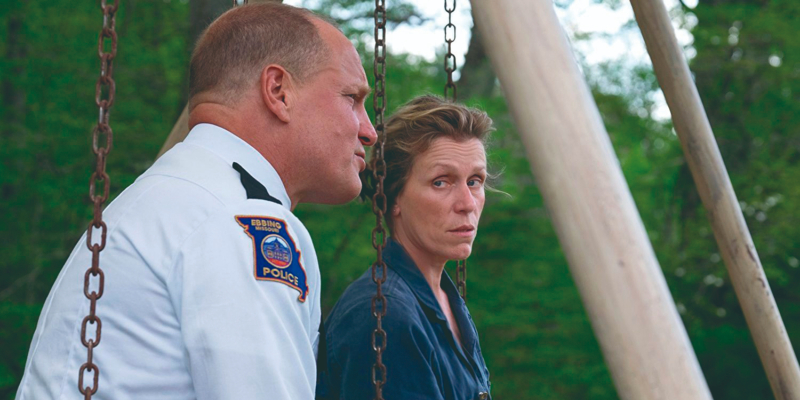The drama moves ambiguously between the noble desire for justice and the vengeful impulse of a mother whose daughter was raped and murdered by who knows who.
Text -José María Garrido
Movie: Three Ads on the Outskirts
Direction and screenplay: Martin McDonagh
UK-US, 2017. USA, 2017
The film has been the most rewarded at the 2018 Golden Globe Awards, and has seven Oscar nominations. Martin McDonagh (1970), has been triumphing for years in the United States as a playwright with exuberant stories of violence. His assault on the seventh art was undertaken in the last decade, with reds and mockeries a la Tarantino and Cohen brothers. But in his latest feature film he consolidates his own skill, and harvests, among others, the Golden Globe for best dramatic film and best screenplay.
The drama moves ambiguously between the noble desire for justice and the vengeful impulse of a mother (Frances McDormand) whose daughter was raped and murdered by who knows who. Months after the crime, she drives past the lonely back road leading to her home on the outskirts of a small Missouri town and notices the usual three large, abandoned and useless billboards. Suddenly, he stops the car (he's read something on a billboard), and puts the car in reverse to look at the previous one. In the remains of the last advertisement he finds "the opportunity... of a lifetime". With the reflux of resentment, he calculates a plan of justice. And he rents the three billboards to stamp incendiary phrases asking the local police chief why he has not yet caught the murderers.
The story twists and turns and progressively unveils a deeply tragic picture with bits of outlandish jokes and implausible situations that underscore the character of each character and heighten the drama. The passionate tone of the whole allows the "unbelievable" moments (director's tricks) to be enjoyed as if they were precisely what they could not be otherwise.
The abundance of close-ups gives Sam Rockwell (Golden Globe) and Woody Harrelson the alibi to fill the screen, while the protagonist, Frances McDormand (also Golden Globe), comes out at all four corners, with the sobriety of a minimal wardrobe and as many silent glances as merciless words. By the way: I don't know how the film has turned out in Spanish (I've given in to the V.O. so common among Latin American viewers), but the original sharp-tongued dialogue has no shortage of basic four-letter interjections. They are the counterpoint to a neat soundtrack, by Carter Burwell, who has composed fifteen times for the Cohens.








